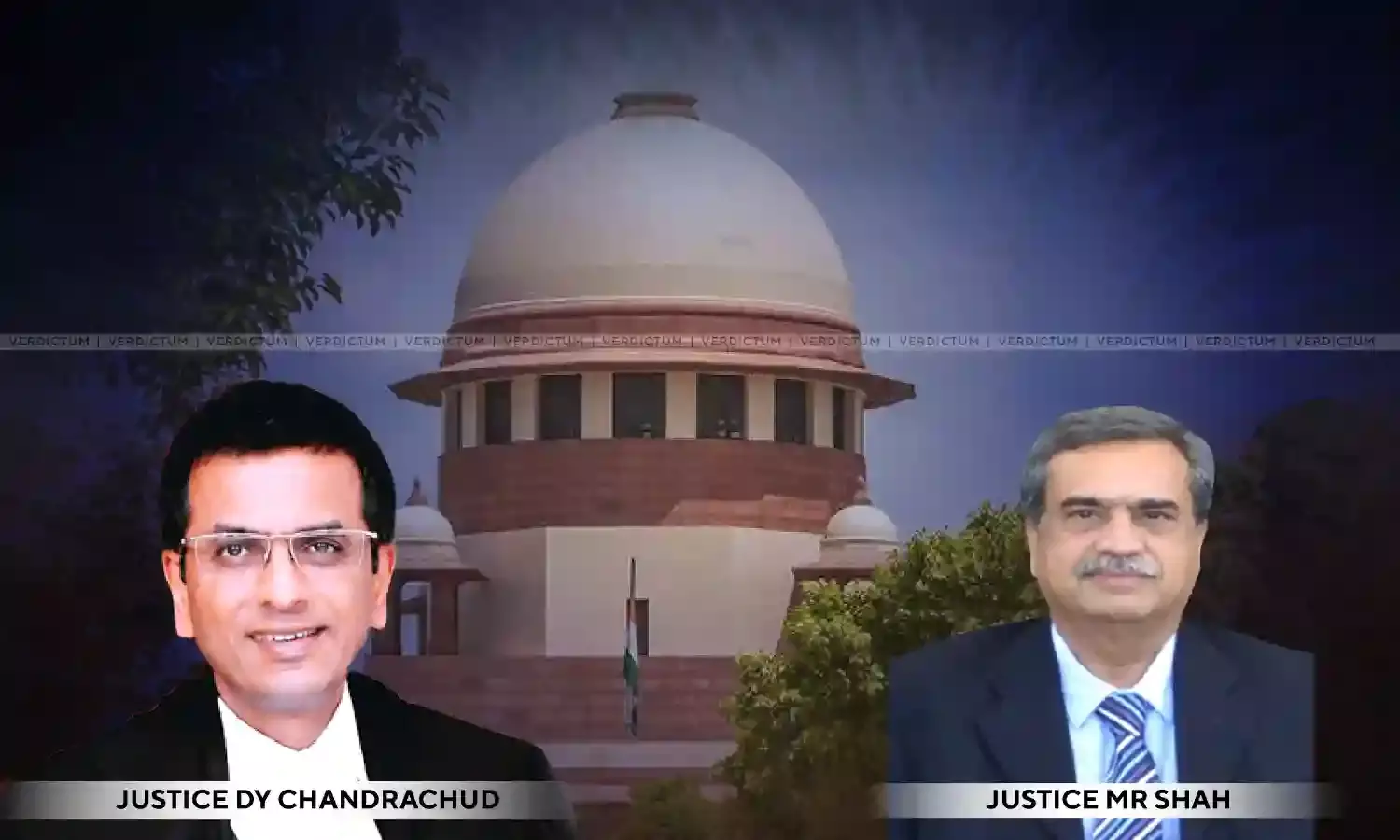Supreme Court Orders Demolition Of Twin Towers Of Noida's Emerald Court Holding That Illegal Construction Has To Be Dealt With Strictly
The Court held that starting from commencement to completion, the whole procedure of construction has to be regulated as per the provisions of the law so that it does not affect the lives of the people living in that area.
A two-judge Bench of Justice DY Chandrachud and Justice MR Shah has held that illegal construction has to be dealt with strictly to ensure compliance with the rule of law.
The Court was of the view that an unregulated construction materially affects the right enjoyment of property by persons residing in a residential area and hence, it is the duty of the municipal authority to ensure that the area is not adversely affected by unauthorized construction.
Appeals were preferred before the Supreme Court against the judgment passed by the Allahabad High Court in a Writ Petition instituted by the Respondent 1 (The RWA) of Emerald Court Group Housing Society against Supertech Limited (Appellant) which had ordered for the demolition of the twin towers (T-16 and T-17) by the New Okhla Industrial Development Authority that was constructed by the Appellant.
The Court had also ordered that the cost of demolition would be borne by the Appellant. The High Court had further directed that the officials of NOIDA and that of the Appellant be prosecuted for the violation of UPIAD Act 1976 and Uttar Pradesh Apartment (Promotion of Construction, Ownership & Maintenance) Act 2010. The Appellant was also directed to refund the amount invested by the purchasers who had booked their apartments in the twin towers with interest at fourteen percent compounded annually.
The facts presented by the Respondents established that there was a challenge to the revised plans by which construction and increase in height of twin towers were envisaged, in violation of the norms laid and endangering the safety of the residents living in the society.
The construction of the twin towers was challenged by the Respondents on the ground of a violation of –
- NBR 2006;
- NBR 2010;
- NBC 2005;
- UP 1975 Act;
- UP Apartments Act 2010; and
- Fire Safety Norms
The Court after considering the relevant facts and contentions of both the parties at length, observed, "The record of this case is replete with instances which highlight the collusion between the officers of NOIDA with the appellant and its management. The case has revealed a nefarious complicity of the planning authority in the violation by the developer of the provisions of law."
The Apex Court was in agreement with the judgment pronounced by the Allahabad High Court holding, "The High Court has in these circumstances correctly come to the conclusion that there was collusion between the developer and the planning authority."
"The rampant increase in unauthorized constructions across urban areas, particularly in metropolitan cities where soaring values of land place a premium on dubious dealings has been noticed in several decisions of this Court. This state of affairs has often come to pass in no small a measure because of the collusion between developers and planning authorities," the Bench noted.
The Court held that starting from commencement to completion, the whole procedure of construction has to be regulated as per the provisions of law. "The regulatory framework encompasses all stages of construction, including allocation of land, sanctioning of the plan for construction, regulation of the structural integrity of the structures under construction, obtaining clearances from different departments (fire, garden, sewage, etc.), and the issuance of occupation and completion certificates. While the availability of housing stock, especially in metropolitan cities, is necessary to accommodate the constant influx of people, it has to be balanced with two crucial considerations – the protection of the environment and the well-being and safety of those who occupy these constructions."
Further the Court observed that often due to the violation of regulations by the developers it directly hits the very core of urban planning which leads to causing increased harm to the environment and dilution of safety standards. Hence, illegal construction has to be dealt with strictly to ensure compliance with the rule of law.
"A breach by the planning authority of its obligation to ensure compliance with building regulations is actionable at the instance of residents whose rights are infringed by the violation of law. Their quality of life is directly affected by the failure of the planning authority to enforce compliance. Unfortunately, the diverse and unseen group of flat buyers suffers the impact of the unholy nexus between builders and planners. Their quality of life is affected the most. Yet, confronted with the economic might of developers and the might of legal authority wielded by planning bodies, the few who raise their voices have to pursue a long and expensive battle for rights with little certainty of outcomes. As this case demonstrates, they are denied access to information and are victims of misinformation. Hence, the law must step in to protect their legitimate concerns," the Court opined.
The Court upheld the decision of the Allahabad High Court and ordered for the demolition of the twin towers (T-16 and T-17) and directed for the demolition work to be completed within a period of three months. The Appellant was ordered to refund to all the existing flat purchasers in the twin towers with an interest of twelve percent per annum. The Appellant was directed to pay a sum of Rs. 2 Crore to RWA within a period of one month.
(Supertech Limited v. Emerald Court Owner Resident Welfare Association & Ors.)












